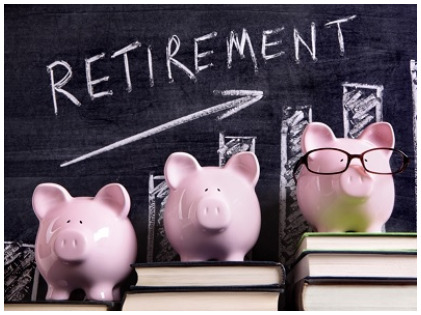You’ve spent a lot of money-saving up for your retirement and it was likely one of the most expensive undertakings, perhaps second to your mortgage if you had high-interest rates to beat. No matter the amount you have saved up, being financially prepared is only one part of preparing for retirement. Yes, finances are indeed important, but emotional preparation is very necessary as well. If you ask someone about their retirement plans, they are likely to mention their retirement annuities, provident funds or investments. But that’s only one piece of the puzzle. Don’t put so much time into funding your retirement that when you get there you realize you aren’t prepared in other ways. Here we have outlined five stages of retirement, which can help you prepare for your retirement lifestyle.
Imagination

This phase may be a phase you are in right at this moment. It typically begins about six to fifteen years before your actual retirement. During this time, you experience growing anticipation as well as a sense of excitement as you near your retirement date – particularly if you have set a specific date upon which to retire. Statistics show that about 74% of people expect to enjoy their retirement when asked during this phase. During this phase, it is also natural to be more focussed on your carer and perhaps paying off debt or putting kids through tertiary education.
Anticipation
The anticipation period begins form five years before retirement as people begin to realize how close they are to the finish line! Here there is a lot of hope and excitement and financial resources should be almost in place. People generally start to invest extra effort into their retirement plans, as they realize the time has almost come. A small dose of doubt and worry sneaks in during this time as well, particularly in the year or two before the retirement date.
Liberation

From the very first day of retirement, the liberation phase sets in. The first year f retirement is generally full of the same feelings as the first day – relief that the hustle and bustle of the daily grind is now history and excitement about finally having reached retirement. This is termed the ‘honeymoon phase’ of retirement. People feel liberated from their responsibilities and from their worries. This is a time when retirees are immersed in novel opportunities of t=retirement and are working on reconnecting with spouses, family or close friends. Retirees also find they are very busy during this time.
Reorientation
Now comes a tougher phase of retirement. While in the liberation phase, retirees tend to believe that since they are so busy as newly retired people, they will have plenty to do in their retirement. Come to the reorientation phase and retirees begin to realize that they haven’t planned their time and their to-do list is full of short-term goals, like fixing the gutters, mending the cupboards or some traveling. For retirees to avoid falling into a rut, they have to identify a purpose in their lives. Without some sense of direction or purpose, retirees either develop depression or become trapped in an unfulfilling lifestyle. Many people end up reinventing themselves or undergoing an immense transformation in terms of their lifestyles, but this usually requires the luxury of flexible finances. The reorientation period lasts anywhere between two to fifteen years after retirement.
Reconciliation

Somewhere after the first fifteen years of retirement comes the reconciliation phase. This is the fifth and final stage of retirement and it is a phase in which many retirees feel relatively content with their lifestyle. They are more hopeful and have also grown more comfortable with their retirement lifestyle and what it has to offer them. Statistics show that there are reduced levels of anxiety and depression during this phase. Of course, many begin to confront the end of their lives by this point, so there is some sadness, but not from unfulfillment.
Acclimatizing to a new way of life is no easy feat. Your new lifestyle comes with the unknown territory and a lot of emotions. Fortunately, now that you are aware of what to expect, you can better use the time you have left before you retire to prepare in other ways, apart from financially. Create the retirement lifestyle of your dreams – and do so realistically!





